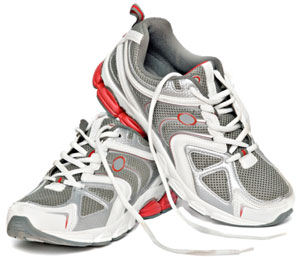Walking: Good for More than Your Waistline
 Imagine you’re at a party and a new acquaintance comes over to say hello. In a blind moment of panic you realize that you’ve just met the person, but you can’t remember their name. Sound familiar? Memory is so important in our daily lives, and it can be frustrating (not to mention embarrassing) when we have trouble recalling information. But can we improve our memories?
Imagine you’re at a party and a new acquaintance comes over to say hello. In a blind moment of panic you realize that you’ve just met the person, but you can’t remember their name. Sound familiar? Memory is so important in our daily lives, and it can be frustrating (not to mention embarrassing) when we have trouble recalling information. But can we improve our memories?
According to researchers Carlos Salas (University of Illinois at Chicago), Katsumi Minakata (California State University, Long Beach), and William Kelemen (California State University, Long Beach), the answer may be as simple as taking a short walk. In their study, participants were instructed to walk at a brisk pace or to sit for 10 minutes before studying a list of 30 nouns. After seeing each noun, participants rated how likely they were to recall the word on a future memory test. The participants then walked or sat for another 10 minutes before completing a recall test.
Participants who walked before studying showed a 25 percent increase in word recall compared to those who sat. Although the participants who went for a pre-study-session walk had enhanced recall, walking prior to the test had no effect on participants’ test performance.
A short walk before learning new information may be all you need to gain that much-needed memory boost. So next time you’re at a party, consider taking a lap around the punch bowl before shaking hands. Someone may give you a weird look, but at least you won’t forget their name.
![]() Salas, C. R., Minakata, K., & Kelemen, W. L. (2011). Walking before study enhances free recall but not judgment-of-learning magnitude. Journal of Cognitive Psychology, 23 (4)
Salas, C. R., Minakata, K., & Kelemen, W. L. (2011). Walking before study enhances free recall but not judgment-of-learning magnitude. Journal of Cognitive Psychology, 23 (4)





APS regularly opens certain online articles for discussion on our website. Effective February 2021, you must be a logged-in APS member to post comments. By posting a comment, you agree to our Community Guidelines and the display of your profile information, including your name and affiliation. Any opinions, findings, conclusions, or recommendations present in article comments are those of the writers and do not necessarily reflect the views of APS or the article’s author. For more information, please see our Community Guidelines.
Please login with your APS account to comment.